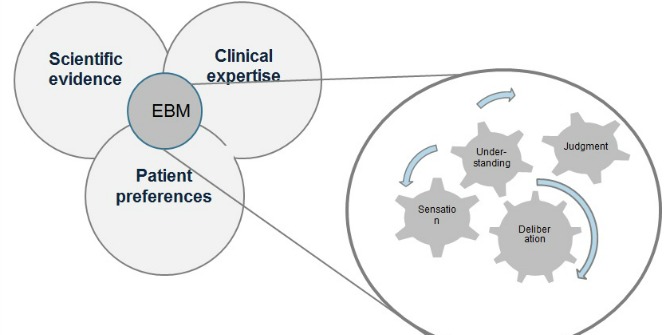الخطوط العريضة للقسم
-
The papers and videos below will give you a good critical perspective on EBM. This will help you answer the question in the oral exam such as: What is EBM? What are its limits and strengths? Spend time studying these and take notes on each to prepare for the final exam
-
Watch the video on BioMed Central and listen to two leading researchers talk about EBM and its strengths and weaknesses (you can activate subtitles in English!). Trish Greenhalgh is Professor of Primary Health Care and Dean for Research Impact at Bart's and the London School of Medicine and Dentistry, UK, while Neal Maskrey is Professor of Evidence-informed Decision Making at Keele University, UK.
Both share a background in General Practice and are advocates of the campaign for real evidence-based medicine. Here Greenhalgh and Maskrey discuss the origins of evidence-based medicine, how it has gone astray, and what is needed to address some of the problems facing evidence-based practice today.

-
In the oral exam you will be asked general questions about Evidence-Based Medicine:
For example: What is EBM? Can you give a definition? What are its strengthen and weaknesses?
What types of study designs do you know? How are they different? What different clinical questions do they answer? The link to the paper Pros and Cons gives a detailed overview of the strengths and weakness to help you answer these questions. The resources links are also very recommended.
-
This is a stimulating 14 minute talk on 'bad science 'by Ben Goldacre. It explains how important 'transparency' in clinical evidence is but also how easily evidence can be manipulated. You can listen to this talk with Italian subtitles. It provides a philosophical background to your EBM project and the idea of 'critical analysis'.
-
These notes on EBM are by Theodore J Gaeta, DO, MPH, FACEP.

-
This is a short paper on types of bias in clinical research. Use it to help you analyse potential bias in your presentation
-

